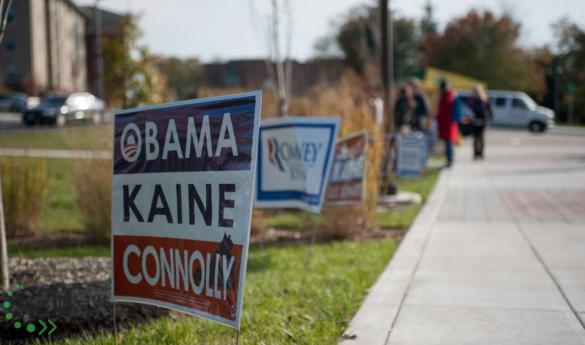OPINION: Why the youth vote matters
In 2008, political analysts found that, while the youth vote—those under 30--broke overwhelmingly for Barack Obama, it did not singularly tip the election in his favor. Exit polls from the 2012 election show Obama once again won the youth vote, this time by 67 percent nationally and 61 percent in swing states. Not only was the breadth of the youth vote integral to this election, but the depth, too, played an important factor. Exit poll data suggests that one in five voters on Tuesday was under the age of 30, with half of eligible voters ages 18 through 29 casting a ballot. These numbers represent a 5 percent increase in youth voters, totaling about 23 million young voters. In short, the youth voted; they voted heavily, and they voted overwhelmingly for Barack Obama. The Center for Research and Information on Civic Learning and Engagement at Tufts University estimates that, if Romney could have turned those numbers into a 50-50 split, he would have won those states and thus have won the election.
These numbers reflect what we saw here at Mason on Tuesday. Lines for the polls began before 6:00 a.m., and students all day long said they were waiting for 30, 45, 60 minutes to cast a ballot. Turnout was predicted to be 400 people; the precinct had reached that number before 10:30 a.m. At the end of the day, more than 1,600 ballots were cast, which quadrupled the prediction, with registered turnout hitting around 70 percent. Exit poll data from Student Government showed students of all classes breaking for Obama by 77 percent, above the national average. From the partisan and nonpartisan or apolitical groups that flooded the area around the precinct Tuesday, to the spontaneous group of students who rode a giant red-bike-contraption around campus reminding students to vote, the campus was very much alive with election fever. As this quantitative and qualitative analysis suggests, the youth turned out to vote.
These conclusions beg the age-old question: does the youth vote matter? In a purely statistical sense, the answer is yes and, as the Tufts University analysis concludes, the youth vote could have tipped the election in a different direction. Such numbers will surely motivate future campaigns, both for federal and local offices, to focus more heavily on the youth vote. This includes visiting campuses for speeches and voter engagement, focusing resources on get-out-the-vote efforts for college students, and highlighting, rather than hiding, higher education and college student issues.
But, in a broader sense, the role of the youth vote in this election has far greater ramifications. The quantitative and qualitative analysis illustrates how the youth turned out to vote. No great example exists to disprove the stereotype of the apathetic college student. At Mason, it cannot be said that college students do not care and that the youth vote does not matter. With a gubernatorial election next year, political analysts were already looking at how best to engage an electorate that wants to be engaged.
This generation is ready to lead. We are voting, therefore playing a decisive role in elections. We are interning, often without pay, in every partisan and nonpartisan office and agency in all levels of government. We are studying in order to better understand how this globalized world and region works as well as to determine what role we can play in it. And most of all, we are listening to the current generation of leaders, the youngest of whom were born a decade before us. As we continue to vote, to intern, to study and to listen, our generation—the 9/11 generation, born after the 1990s and raised in the 21st century—is waiting to lead.
Opinions expressed in this column are solely the beliefs of the writer.
Would you like to have your opinion considered for publication? If so, send an email to opinion@connect2mason.com with the subject line "opinion writer position."

